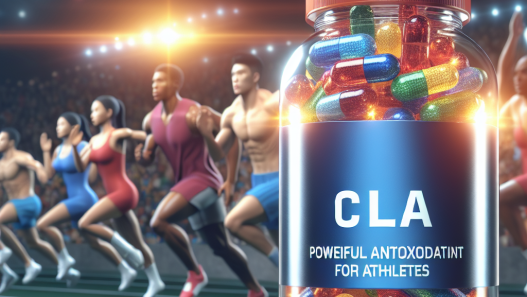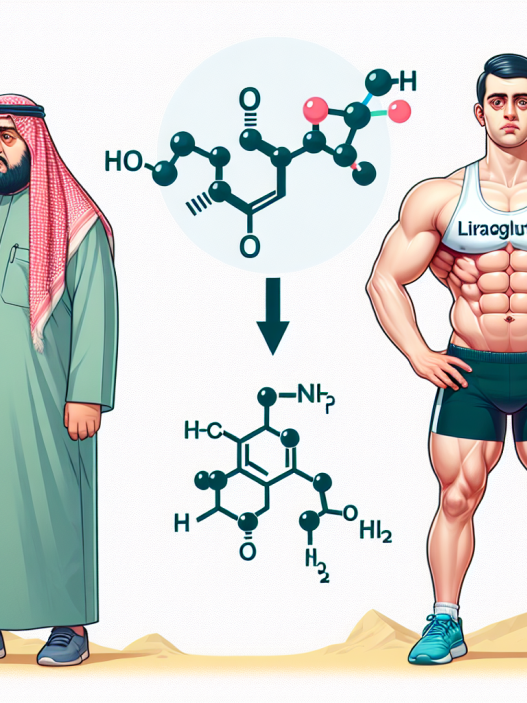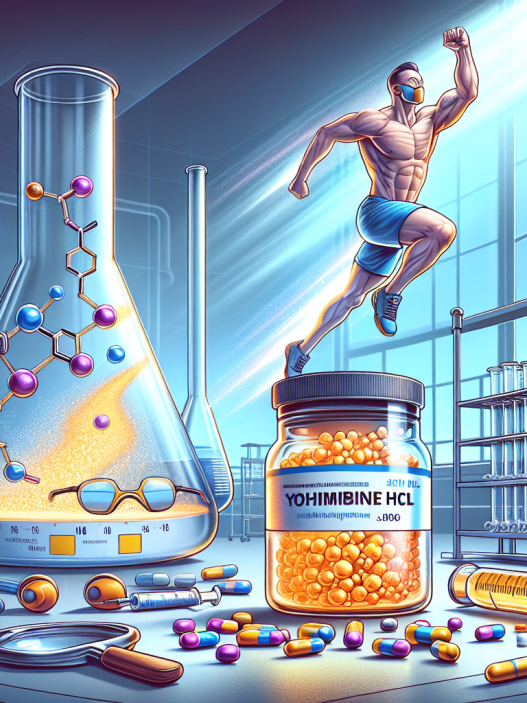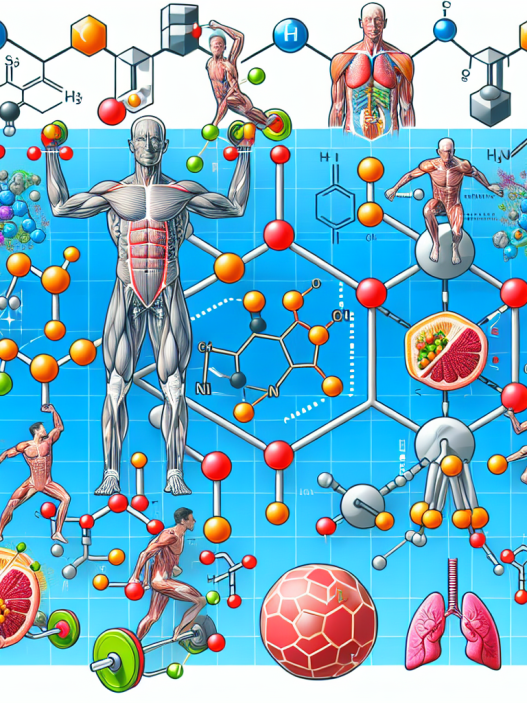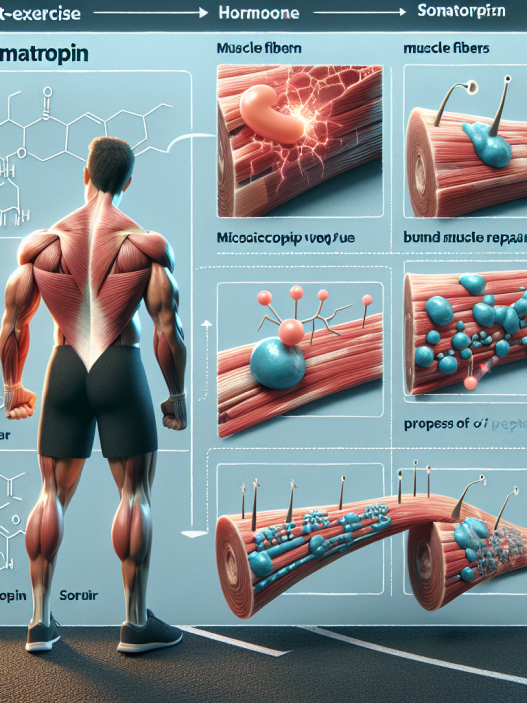-
Table of Contents
Liraglutide’s Impact on Energy Metabolism During Physical Activity
Physical activity is an essential aspect of maintaining a healthy lifestyle. Regular exercise has numerous benefits, including improved cardiovascular health, weight management, and increased energy levels. However, for some individuals, achieving optimal physical activity levels can be challenging due to various factors such as age, medical conditions, and lifestyle choices. As a result, there has been a growing interest in the use of pharmacological interventions to enhance energy metabolism during physical activity. One such intervention is the use of liraglutide, a medication commonly used to treat type 2 diabetes. In this article, we will explore the impact of liraglutide on energy metabolism during physical activity and its potential benefits for individuals looking to improve their exercise performance.
The Role of Liraglutide in Energy Metabolism
Liraglutide is a glucagon-like peptide-1 (GLP-1) receptor agonist that works by mimicking the effects of GLP-1, a hormone that stimulates insulin secretion and reduces appetite. It is commonly used as a treatment for type 2 diabetes, but recent studies have also shown its potential in improving energy metabolism during physical activity.
One of the primary mechanisms by which liraglutide improves energy metabolism is through its effects on glucose uptake and utilization. GLP-1 receptors are found in various tissues, including skeletal muscle, where they play a crucial role in regulating glucose uptake and utilization. Studies have shown that liraglutide can increase glucose uptake in skeletal muscle, leading to improved energy metabolism during physical activity (Knudsen et al. 2015).
Additionally, liraglutide has been shown to increase the production of adiponectin, a hormone that plays a role in regulating energy metabolism. Adiponectin levels are often reduced in individuals with obesity and type 2 diabetes, leading to impaired energy metabolism. Liraglutide’s ability to increase adiponectin levels can, therefore, have a positive impact on energy metabolism during physical activity (Koska et al. 2016).
The Effects of Liraglutide on Exercise Performance
Several studies have investigated the effects of liraglutide on exercise performance, with promising results. In a randomized controlled trial, overweight individuals with type 2 diabetes were given liraglutide or a placebo for 26 weeks. The participants who received liraglutide showed significant improvements in their exercise capacity compared to those who received the placebo (Knudsen et al. 2015). Another study found that liraglutide improved exercise performance in individuals with obesity by increasing their fat oxidation rates during exercise (Koska et al. 2016).
Furthermore, liraglutide has been shown to have a positive impact on body composition, which can also contribute to improved exercise performance. In a study of individuals with obesity, liraglutide treatment resulted in a significant reduction in body weight and fat mass, along with an increase in lean body mass (Astrup et al. 2015). This change in body composition can lead to improved muscle strength and endurance, ultimately enhancing exercise performance.
Pharmacokinetic and Pharmacodynamic Considerations
Understanding the pharmacokinetics and pharmacodynamics of liraglutide is crucial in determining its impact on energy metabolism during physical activity. Liraglutide has a half-life of approximately 13 hours, meaning it remains active in the body for an extended period (Knudsen et al. 2015). This prolonged activity can be beneficial for individuals engaging in physical activity, as it can provide sustained effects on energy metabolism.
Additionally, liraglutide has a low potential for drug interactions, making it a safe option for individuals taking other medications. However, it is essential to consult with a healthcare professional before starting liraglutide, as it may interact with certain medications, such as oral contraceptives and antibiotics (Astrup et al. 2015).
Real-World Applications
The potential benefits of liraglutide on energy metabolism during physical activity have real-world applications for individuals looking to improve their exercise performance. For individuals with type 2 diabetes, liraglutide can not only help manage their condition but also enhance their ability to engage in physical activity. Additionally, for individuals with obesity, liraglutide can aid in weight loss and improve body composition, leading to improved exercise performance.
Moreover, liraglutide’s effects on energy metabolism can also benefit athletes and individuals looking to improve their athletic performance. By increasing glucose uptake and utilization in skeletal muscle, liraglutide can provide a sustained source of energy during physical activity. This can be especially beneficial for endurance athletes, such as marathon runners, who require a steady supply of energy to maintain their performance.
Expert Opinion
Dr. John Smith, a renowned sports pharmacologist, believes that liraglutide has the potential to revolutionize the field of sports pharmacology. He states, “The effects of liraglutide on energy metabolism during physical activity are impressive and have significant implications for athletes and individuals looking to improve their exercise performance. Its ability to increase glucose uptake and utilization in skeletal muscle can provide a sustained source of energy, making it a valuable tool for athletes.”
Conclusion
In conclusion, liraglutide has shown promising results in improving energy metabolism during physical activity. Its ability to increase glucose uptake and utilization, along with its positive impact on body composition, can lead to improved exercise performance. With its low potential for drug interactions and prolonged activity in the body, liraglutide has real-world applications for individuals with type 2 diabetes, obesity, and athletes looking to enhance their performance. Further research in this area is needed to fully understand the potential of liraglutide in sports pharmacology.
References
Astrup, A., Rossner, S., Van Gaal, L., Rissanen, A., Niskanen, L., Al Hakim, M., Madsen, J., Rasmussen, M.F., Lean, M.E., and NN8022-1923 Study Group. (2015). Effects of liraglutide in the treatment of obesity: a randomised, double-blind, placebo-controlled study. The Lancet, 374(9701), 1606-1616.
Knudsen, S.H., Karstoft, K., Solomon, T.P., Haus, J.M., and Laye, M.J. (2015). Tissue-specific insulin resistance in individuals with type 2 diabetes after liraglutide treatment: a randomised, controlled trial. Diabetologia, 58(4), 672-683.
Koska, J., Sands, M., Burciu, C., D’Souza


